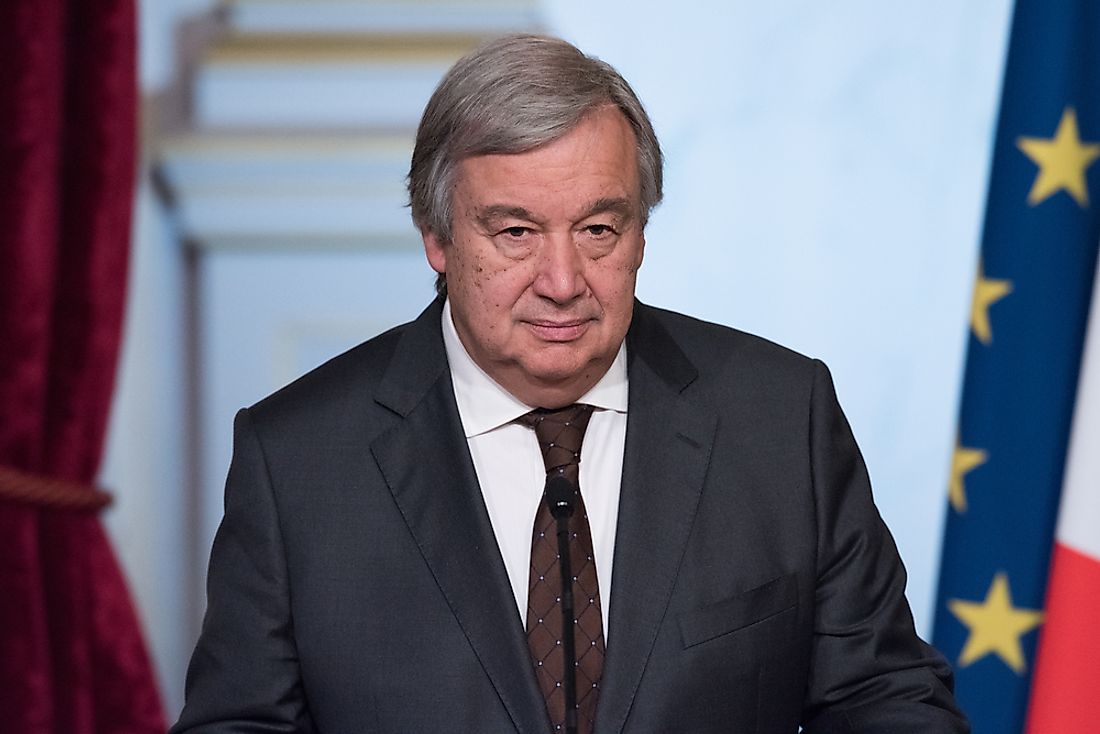A List of Secretary-Generals of the United Nations

There have been nine secretary-generals of the United Nations (UNSG or just SG) since the appointment of the first position in February 1946. Trygve Liethe of Norway served as the first Secretary-General, and Antonio Guterres of Portgual serves as the current Secretary-General.
9. Trygve Lie
Trvgne Lie was a Norwegian diplomat born on July 16, 1896, in Oslo. He attended Oslo University for his law degree. After holding various positions in Norway’s government, Trugne Lie became the chairman of the Norwegian delegation to the United Nation General Assembly in London. On February 1, 1946, he was elected the first secretary General of the UN and officially inaugurated the following day.
8. Dag Hammarskjold
Dag Hammarskjöld was a diplomat from Sweden born in 1905. He was appointed the Secretary-General of the UN in 1953 and served until he died in a plane crash on September 18, 1961. He received posthumous Nobel Prize, and he is remembered to have established the meditation room at UN head-offices under his supervision where people assembled regardless of their religion or faith to have a moment of silence.
7. U Thant
U Thant was the third Secretary-General of the UN from 1961 to 1971, appointed following the death of Dag Hammarskjold. U Thant schooled at National High School in Pantanaw and later proceeded to University College, Rangoon. He was an educationist working at various institutions until his appointment. U Thant was publicly famous for faulting the conduct of America in the Vietnam war.
6. Kurt Waldheim
Kurt Waldheim was chosen as the Secretary-General of the UN in January 1972, and re-elected in 1977. He attended the University of Vienna in 1944 as a Doctor of Jurisprudence. He was credited to have made it a habit of making trips to places of concern to the UN. Waldheim visited Namibia and South Africa in 1972 to help in establishing a convincing solution to the Namibia-South Africa conflict.
5. Javier Perez de Guellar
Javier Perez de Guellar took over as Secretary-General of the UN in January 1982. He was born on January 19, 1920, in Lima, Peru. Javier was nominated Permanent Representative of Peru to the UN in 1971 as the delegation leader. Immediately afterward, he took over as the Secretary-General Special Representative in Cyprus. He left the UN Secretary-General office despite a request to contest for the third time on December 31, 1991.
4. Boutros Boutros-Ghali
Boutros Boutros-Ghali came in as the sixth Secretary-General of United Nations on January 1, 1992, after his election on December 3, 1991. Before then, he was the Deputy Prime Minister for Foreign Affairs from May 1991 in his home country of Egypt. He led the UN at a critical stage when the world body faced global crises such as the Rwandan Genocide and the disintegration of Yugoslavia.
3. Kofi Annan
Kofi Annan served as the Secretary-General of UN between January 1997 and December 2006. Annan studied economics and international relations. He held various positions in the United Nations Headquarters until his nomination by the UN Security Council in December 1996. He left office on September 19, 2006, having established global combat of HIV, especially in Africa.
2. Ban Ki-moon
Ban Ki-moon was the Secretary-General of the UN from 2007 to 2016. He was born in June 1944, in Wonnam, Korea. He studied International Relations at Seoul National University before pursuing his Master of Public Administration at Harvard University. He became the foreign minister of South Korea between 2004 and 2006, a position that put him on the map of the world. On October 13, 2006, he was appointed Secretary-General of UN.
1. Antonio Guterres
Antonio Guterres is the current Secretary-General of United Nations. He was born in 1949 to Virgilio Dias Guterres and Iida Candida. Guterres inherited the Haiti cholera crisis in which UN peacekeepers were accused of introducing the bacteria, and he has been pushing for contributions towards $400 million for its eradication. On January 1, 2017, Guterres assured to ensure that 2017 would be a peaceful year; he said, “Let us resolve to put peace first."







